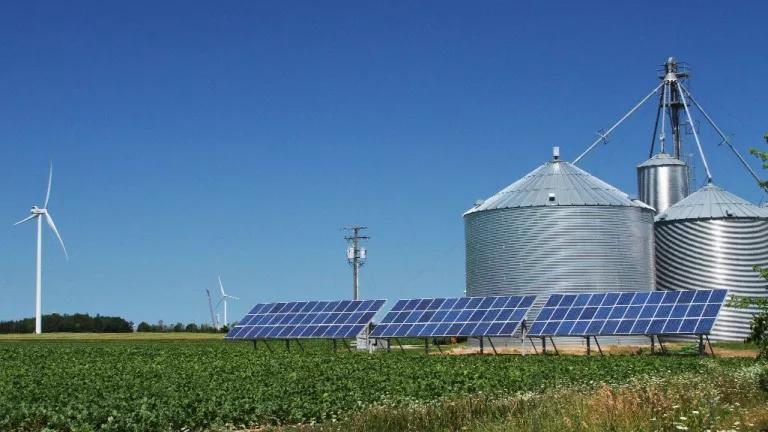For those of you who don't subject yourself to media overload on all things biofuels, consider yourselves lucky. There's a mounting level of rhetoric and a sliding amount of substance. This can probably to be expected to continue as the House and Senate move towards conference with their differing versions of an new energy bill. The stakes are high between the existing corn ethanol industry having surpassed the federally mandated levels and the proposed new Senate requirements large enough to really make a dent in gasoline sales if implemented.
Today's editorial page of The New York Times gives a bit of sense of both the stakes and the rhetorical urgency that's entering the debate. Arguing that the economic pressures driven by biofuels are causing increased industrialization of agriculture, the op-ed concludes:
What we may be witnessing is the beginning of the tragic moment in which the ownership of America’s farmland passes from the farmer to the industrial giants of energy and agricultural production.
Such a transition is indeed probably underway and accelerating and would be a sad transition, but as with most things related to biofuels, it is avoidable and will not happen overnight. We have to choose whether and how we're going to develop alternatives to oil. These alternatives can be better or worse for the environment and farmers. I have talked about how to do biofuels right regularly in this blog including here, here and in this fact sheet, so I'm not going to go on my usual rant.
Rather, I'm just going to point to some of the interesting posts that are prime examples of the on-going debate. Robert Rapier's R-Squared Energy Blog is a good example of a well intentioned, well informed bashing of corn based ethanol that unfortunately in places allows a bit of ideology muddy the case. Robert was mentioned in a recent Rolling Stone article blasting ethanol. Not surprisingly, the article invoked a heated response from the head of the Renewable Fuels Association, which Robert rips apart in this post. Unfortunately, none of this really moves the debate forward in a productive way.
Other posts by Robert are more useful. I've posted a few comments on this post and this related post by Robert over at the Oil Drum. For some reason, Robert has chosen to focus on oil displacement as a central part of his critique of corn based ethanol. Here's a bit of comments (here's the link to the whole):
In the end, I'd just reiterate my basic point: there are a lot of reasons that ethanol from corn has limited ability to scale and there are a lot of exaggerated claims. Most of these claims are about its benefits, but many are about its harmful impacts. The fact of the matter is that we don't use much oil to produce corn ethanol so if there were no other limitations and oil displacement was all that mattered, corn ethanol would be a oil alternative. Rather than trying to attack corn ethanol for one of the things it does well, we should be trying to focus the debate on the issues that really matter such as GHG emissions.
For another take on the oil displacement and energy balance metric, Biopact recently carried this post reporting on Dr. Bruce Dale's efforts to shed some light on the topic. I consider Bruce a friend and a wise man. The title gives you a sense of where he's coming from: Expert: 'net energy' - a useless, misleading and dangerous metric.
Can a metric really be dangerous? Certainly in the current climate of increasingly heated debate it can be. Unfortunately, we have to find a way make this debate constructive--our current energy path is unsustainable and there's no single simple solution.



